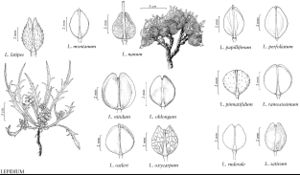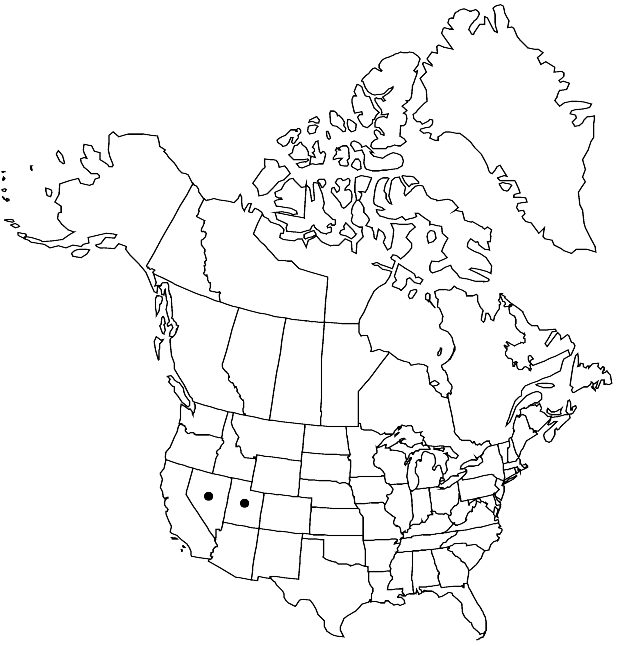Difference between revisions of "Lepidium nanum"
Botany (Fortieth Parallel), 30, plate 4, figs. 5–7. 1871.
FNA>Volume Importer |
FNA>Volume Importer |
||
| Line 47: | Line 47: | ||
|publication year=1871 | |publication year=1871 | ||
|special status= | |special status= | ||
| − | |source xml=https://jpend@bitbucket.org/aafc-mbb/fna-data-curation.git/src/ | + | |source xml=https://jpend@bitbucket.org/aafc-mbb/fna-data-curation.git/src/f6b125a955440c0872999024f038d74684f65921/coarse_grained_fna_xml/V7/V7_950.xml |
|tribe=Brassicaceae tribe Lepidieae | |tribe=Brassicaceae tribe Lepidieae | ||
|genus=Lepidium | |genus=Lepidium | ||
Revision as of 20:24, 24 September 2019
Perennials; (forming pincushion-like, pulvinate mounds, caudex woody, to 1.5 cm diam., buried, much-branched, covered with persistent leaves); puberulent. Stems simple from base (caudex branches), erect to ascending, unbranched distally, 0.05–0.2 dm. Basal leaves rosulate; petiole undifferentiated; blade obovate, 2.5–5 cm × 15–25(–35) mm, margins entire, (ciliolate), apex deeply 3-lobed (lobes ovate to suborbicular, margins entire). Cauline leaves absent. Racemes slightly elongated in fruit, (2–7-fruited); rachis puberulent, trichomes straight, cylindrical. Fruiting pedicels suberect to ascending, often straight, (terete), 2–4.5 × 0.2–0.3 mm, puberulent throughout. Flowers: sepals (tardily deciduous), obovate, 1.3–4 × 0.8–1.1 mm; petals pale yellow or creamy white, spatulate, 1.8–2.9 × 0.8–1.2 mm, claw 0.8–1.1 mm; stamens 6; filaments 1.4–2 mm, (glabrous); anthers 1.4–2 mm. Fruits ovate, 2–4.2 × 1.5–3 mm, often apically winged, apical notch 0.1–0.2 mm deep; valves thin, smooth, not veined, glabrous; style (0.4–)0.6–1(–1.2) mm, exserted beyond apical notch. Seeds oblong, 1–2 × 0.8–1 mm.
Phenology: Flowering May–Jun.
Habitat: Gypsum knolls, tufa mounds around hotsprings, quartzite gravel, barren areas with shale and chalky soil, gravelly hillsides, white calcareous soils
Elevation: 1500-2200 m
Discussion
Lepidium nanum is most common in Nevada and is known in Utah from collections in Tooele County.
Selected References
None.

